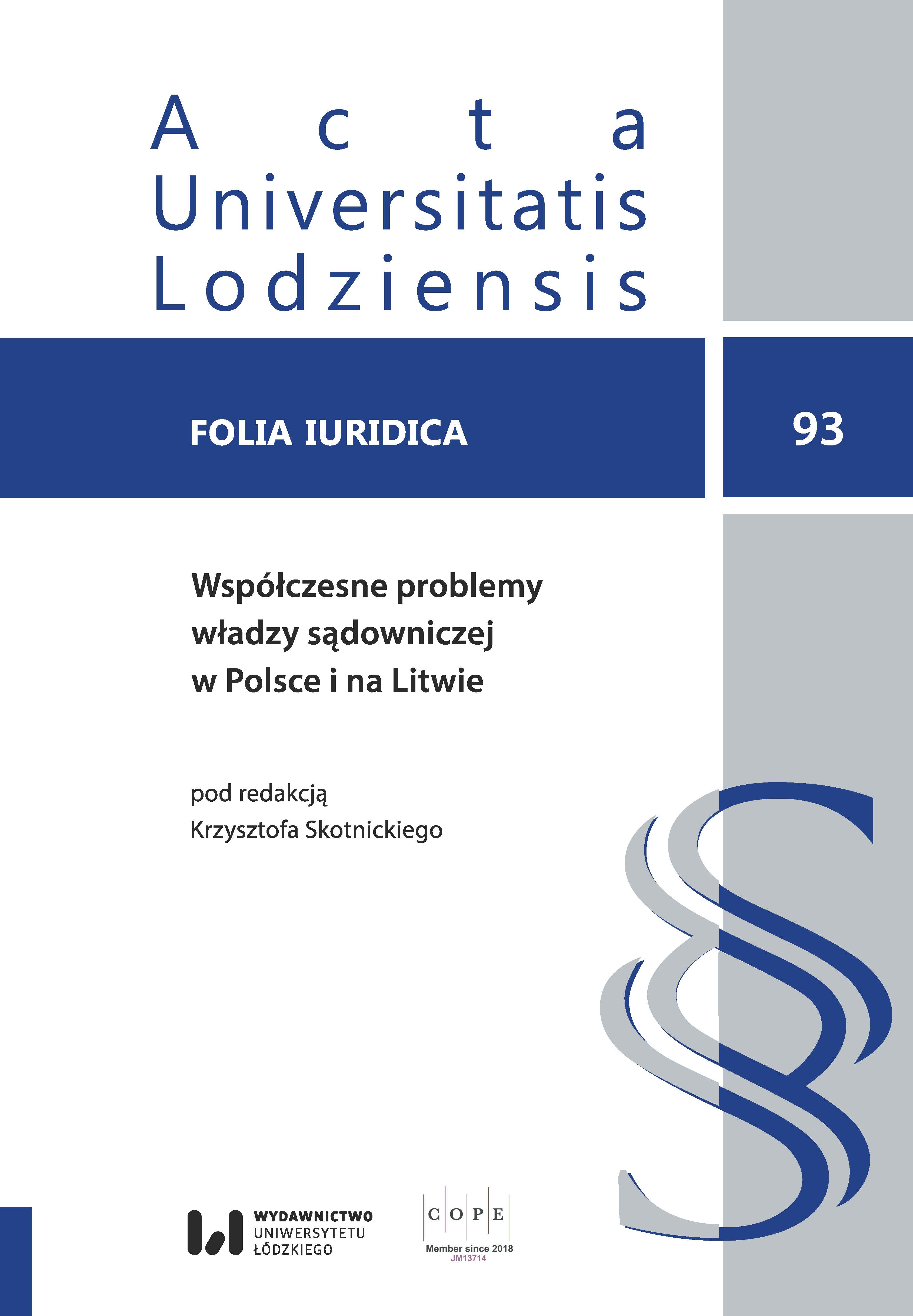Teisminės valdžios konstitucinė samprata Lietuvoje ir Lenkijoje
The constitutional concept of judicial power in Poland and Lithuania
Author(s): Vaidotas A. VaičaitisSubject(s): Law, Constitution, Jurisprudence, Constitutional Law
Published by: Wydawnictwo Uniwersytetu Łódzkiego
Keywords: Constitution; judiciary; independence of courts; Lithuanian Constitutional Court; Polish Constitutional Tribunal
Summary/Abstract: The article is intended to analyze similarities and differences of the 1992 Lithuanian Constitution and the 1997 Polish Constitution regarding the constitutional status of the judiciary. The article consists of three parts: I. The place of judicial power in the Polish and Lithuanian constitutions, II. Lithuanian Constitutional Court and Polish Constitutional Tribunal and III. A special institution of judges under the Constitution of Lithuania and the National Judicial Council under the Constitution of Poland. At the end of the article following differences are to be distinguished: 1. The Polish Constitution mentions military courts, while in Lithuania they do not exist. In addition, the Polish Constitution provides for two types of judicial authorities: courts and tribunals, including the Constitutional Tribunal, meanwhile, the Lithuanian Constitution include only courts. 2. The Constitution of Lithuania provides for two methods of dismissal of judges of the Supreme Court, when they discredit the name of a judge: 1) by the resolution of the Seimas and 2) under impeachment proceedings. Meanwhile, the Polish Constitution does not mention the impeachment proceedings for dismissal of judges. 3. The Constitutional Court of Lithuania and the Constitutional Tribunal of Poland in broader sense belong to the judiciary, and the functions of these institutions are very similar, however, the main difference could be that there are more subjects to address the Polish Constitutional Tribunal than to the Lithuanian Constitutional Court. On the other hand, the Polish Constitutional Tribunal has no jurisdiction to rule on the actions of officials under impeachment and on violations of electoral laws. Finally, under ordinary law, at least one member of the Polish Constitutional Tribunal ex officio is also a member of the Polish Central Electoral Commission. 4. Although the Polish Constitution pays considerably more attention to the National Judicial Council, currently the decisions of the Lithuanian Judicial Council have a greater constitutional weight (than the Polish National Judicial Council), as its negative advice on the appointment or dismissal obliges the President of the Republic. In addition, according to the Law on Courts of the Republic of Lithuania, only judges, the majority of whom are elected by the General Assembly of Judges, may be members of the Lithuanian Judicial Council, while some members of the Polish Judicial Council are not members of judiciary, including those, appointed by politicians.
Journal: Acta Universitatis Lodziensis. Folia Iuridica
- Issue Year: 2020
- Issue No: 93
- Page Range: 5-24
- Page Count: 20
- Language: Lithuanian

